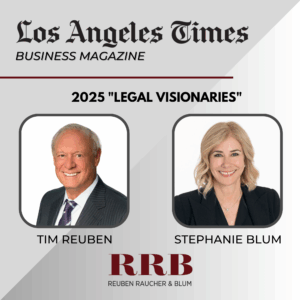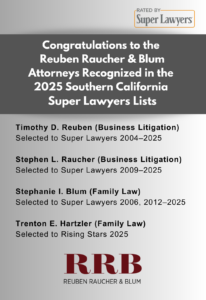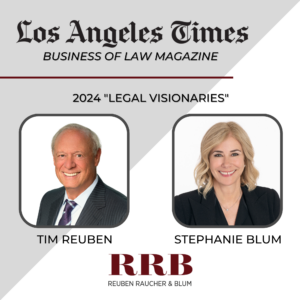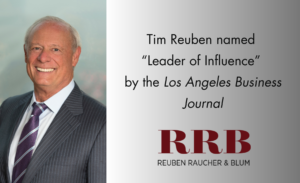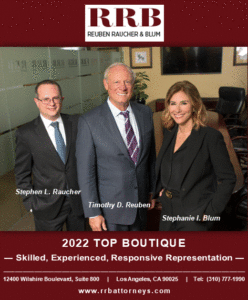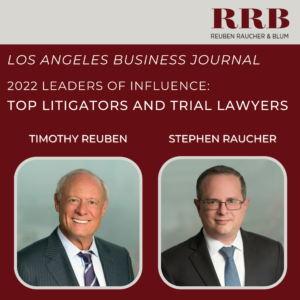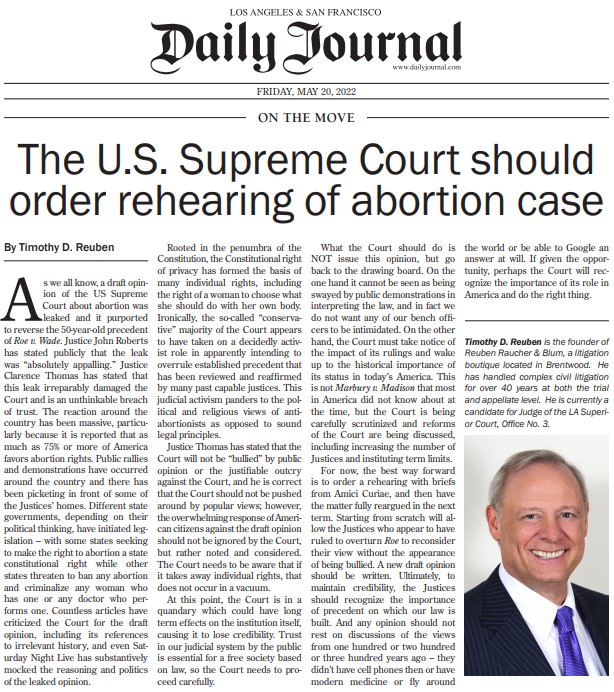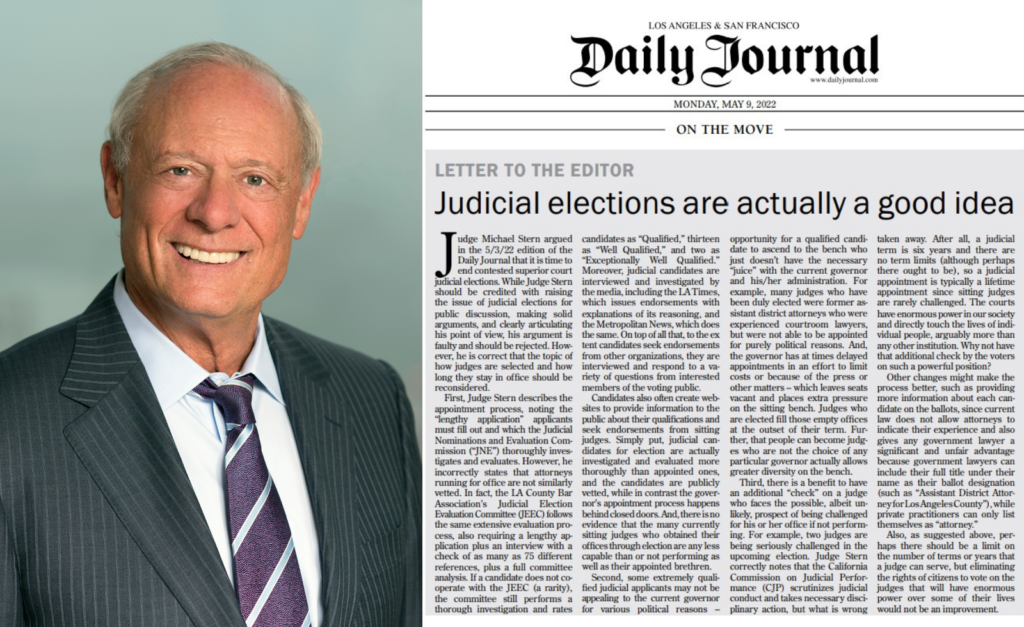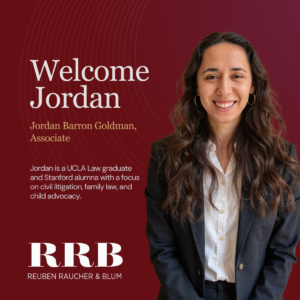
Reuben Raucher & Blum is pleased to announce that Jordan Barron Goldman has joined the firm as an Associate, focusing on civil litigation and family law.
Ms. Barron Goldman first joined RRB as a Law Clerk in August 2024, gaining valuable experience in litigation strategy and client advocacy. After successfully passing the California Bar Exam, she transitioned into her role as an Associate in January 2025.
She earned her J.D. from UCLA School of Law and holds a B.A. in American Studies from Stanford University. Her background includes work at the Children’s Law Center of California, where she provided legal support for children navigating the dependency system, and at the Lanterman Special Education Legal Clinic, where she represented minors and families in securing essential special education services.
Ms. Barron Goldman’s focus on child advocacy, litigation, and family law make her a positive addition to the firm, and we look forward to her contributions.
